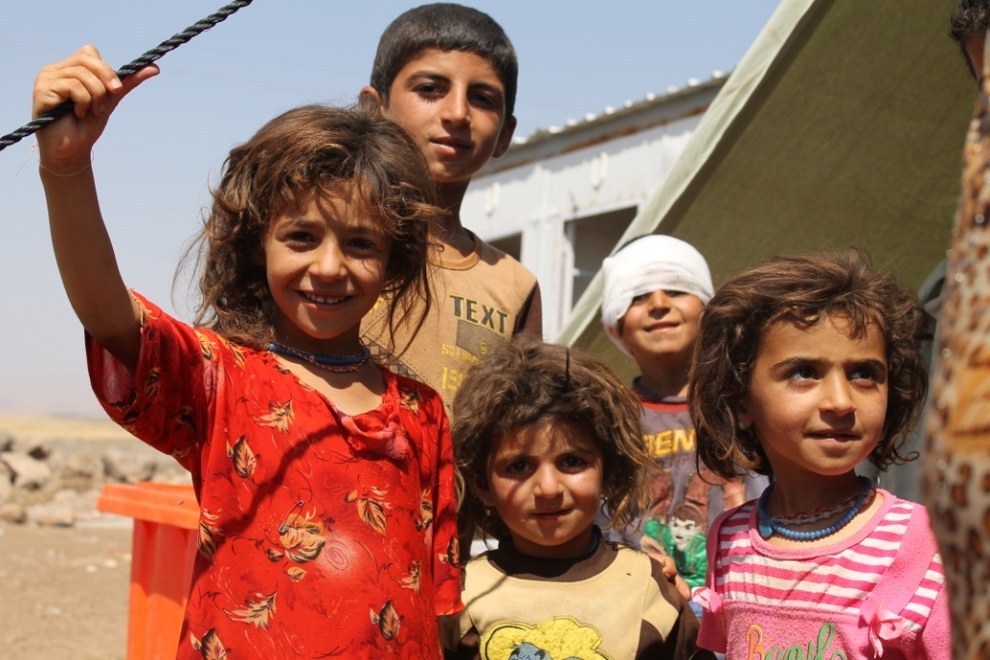Immigration to Canada Means Social, Educational, and Mental-Health Support for Traumatized Children
Canada has stuck by its promise to resettle thousands of Syrian refugees, but plenty of work remains. Syrian refugees face unique challenges upon resettlement, and Canada must support those who are most vulnerable.
Forced to flee their homes, separated from their families, many Syrian refugees have experienced more tragedy than many Canadians could ever imagine. The trauma they experienced will likely continue to haunt them for years to come, even after arriving in a safer country. Unfortunately, many refugees remain vulnerable to further violence and ongoing discrimination. What’s more, Syrian refugees who have immigrated to Canada must overcome a variety of social and economic challenges—and children are no exception.
Mental Health Concerns
Human rights advocates recently reiterated concerns about the mental health of refugees, especially children. Child refugees experience toxic stress from war, with trauma potentially leading to mental illnesses such as depression, anxiety, and psychosis. As a result, many suffer from self-harm and suicidal thoughts and attempts.
Without support, these children will continue to suffer. Canada needs education programs designed to help children traumatized by war. During the First World War, Dr. Maria Montessori designed an effective program to treat and soothe traumatized children, often helping them regain a sense of normalcy. Unfortunately, there wasn’t enough support for her program at the time. Instead, victims of war were only supported with material goods.
Despite advances in mental health, though, this focus on material support remains the norm for many. According to an expert from the University of Windsor, social and community support cannot be ignored.
Continued Social and Community Support
Ben Kuo, a psychology professor at Windsor, is conducting a five-year-long study on the mental health of Syrian refugees, specifically with reference to social inclusion and community. According to Kuo, refugees also need suitable social and community supports to overcome their challenges during resettlement.
Privately-sponsored refugees appear to be resettling well compared to government-sponsored refugees. This difference may be due to the increased social support and inclusion from private sponsors.
Canadian society must do its part in helping refugees feel welcome. Refugees need social inclusion in Canadian society, not seclusion. Discrimination still exists in Canada. And it can lead to harmful racism towards refugees.
Research has found that racism is even more damaging for refugee children who grow up in Canada. These children may only know Canadian life, yet they are told they don’t belong. They need a sense of belonging in both cultures and a balanced cultural identity.
Canadians—whether born here or not—should be able to take pride in their family’s culture as well as mainstream Canadian culture. Canada must be proactive in supporting vulnerable populations, especially children traumatized by war.
Share this article
Arghavan Gerami
Arghavan Gerami is the Founder and Senior Counsel at Gerami Law Professional Corporation ('PC'), a full-service immigration law firm in Ottawa, Ontario. Since 2011, Ms. Gerami has focused her practice on immigration and refugee litigation. Prior to that, Ms. Gerami worked at the Ministry of Attorney General and the Department of Justice and had the privilege of serving the Honourable Mr. Justice M. Evans at the Federal Court of Appeal on immigration and administrative law appeals. Ms. Gerami contributes to the Immigration Law Section of the Canadian Bar Association, the Canadian Association of Refugee Lawyers, and the United Nations High Commissioner for Refugees. Ms. Gerami has also published numerous journal articles and presented at various immigration and refugee law conferences and events across Canada.

